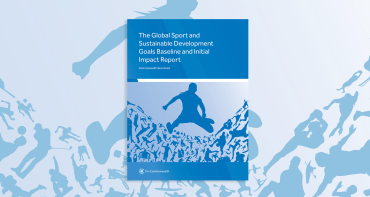Workshop brings together policymakers, campaigners, media and youth
Caribbean public health experts and civil society groups have stressed the pivotal role that media can play in raising awareness about non-communicable diseases (NCDs), which kill more than 34 million people across the world each year.
They were speaking at a two-day workshop in Barbados, which brought together media practitioners, government agencies, civil society and youth, in a bid to stimulate discussion and raise awareness about NCDs, ahead of an historic United Nations High-Level Meeting on the epidemic in September 2011.
It was the first such meeting specifically targeting media in the Caribbean, which has led the way in calling for global action on NCDs such as heart disease, diabetes, chronic lung disease and cancer.
Jointly organised by the Commonwealth Secretariat and the Pan American Health Organization (PAHO), the workshop was aimed at promoting dialogue between different agencies which can play a role in promoting healthy behaviour and influencing policy decisions.
Dr Leslie Rollock, Senior Medical Officer of the Barbados Ministry of Health, told journalists that NCDs are the leading cause of illness, disability and death both regionally and worldwide. As a result, the Caribbean is facing a challenge which is a direct threat to the economic gains made by the region over the past 50 years, she said.
“The increasing costs of these conditions has therefore generated an urgent need for a ‘whole of society’ approach that embraces actions at multiple levels; including prevention and early detection, along with adequate management and care.
“Inclusive in this spectrum will be the need for appropriate messaging to the diverse stakeholders who must play a part in addressing this issue. It is here that you as members of the journalistic fraternity will play a critical role,” she said.
Journalists also heard from Dr Tomo Kanda, eastern Caribbean adviser for PAHO, who said that joint efforts are needed to save lives and prevent millions of premature deaths.
"It is everybody's business. Everyone needs to tackle this health epidemic,” she told reporters.
"I believe the UN High-Level Meeting will be a turning point for everyone including health and non-health professionals, public and private sectors, civil society and media, if we all could make a good partnership to achieve our ultimate health outcome.”
NCDs are often referred to as ‘silent killers’ because the impact of lifestyle patterns such as poor diet, lack of exercise, tobacco use, harmful use of alcohol and changing environmental factors such as urbanisation, can take years to manifest.
September’s UN summit is only the second-ever High-Level Meeting on a health-related topic, and campaigners believe that a commitment from heads of government to prevention and control measures is vital to stem the rise of these diseases.
Globally, NCDs impact more on less developed countries and on poorer sectors of these societies.
Professor Trevor Hassell, Barbados Special Envoy for NCDs, told journalists at the workshop about a Caribbean-wide strategy to mobilise ordinary people in the fight against NCDs. ‘Get the Message’ is a text campaign aimed at raising awareness and showing support for the High-Level Meeting. Their campaign was highlighted at a concert of international superstar Rihanna, who performed in front of a 25,000 strong audience in Barbados on 5 August 2011.
Vanessa Baugh, Adviser (Health) at the Commonwealth Secretariat said: “The opportunity to bring together different sectors at the workshop facilitated discussion and promoted a shared learning experience and a commitment from the media and young people to advocate on NCDs.”
It also gave government agencies and civil society organisations an insight into how they can work with the media in combating these diseases, she said.
Director of Health at the Secretariat, Dr Sylvia Anie said: “The media is a potent tool for public health advocacy and is critical to effect action in policy or to alter and inform the public's view on issues.”


